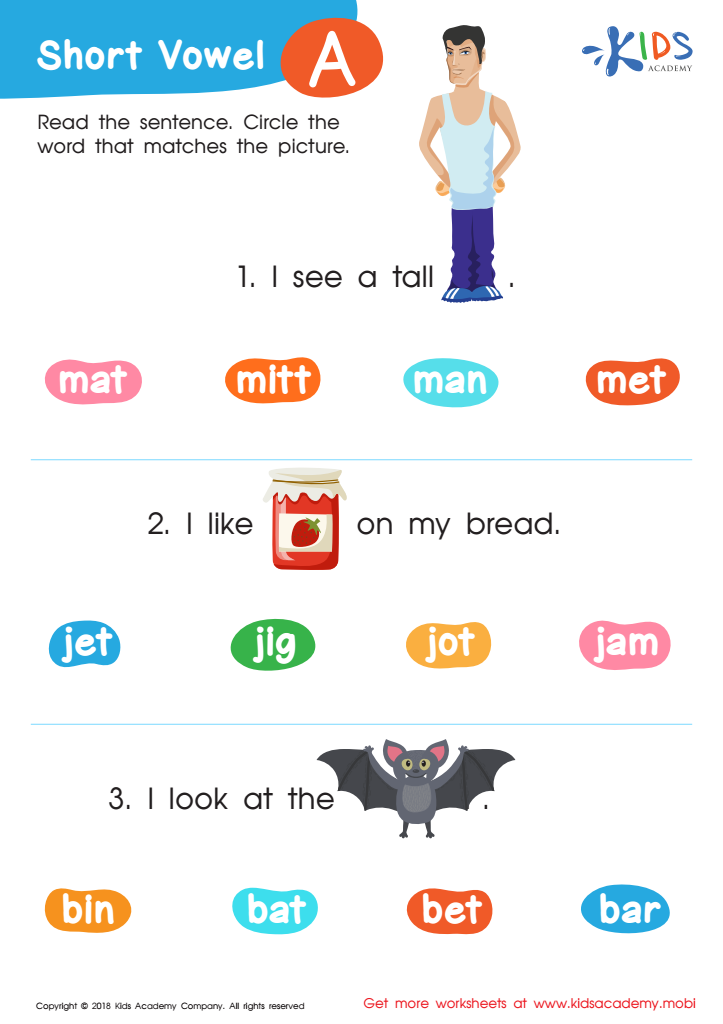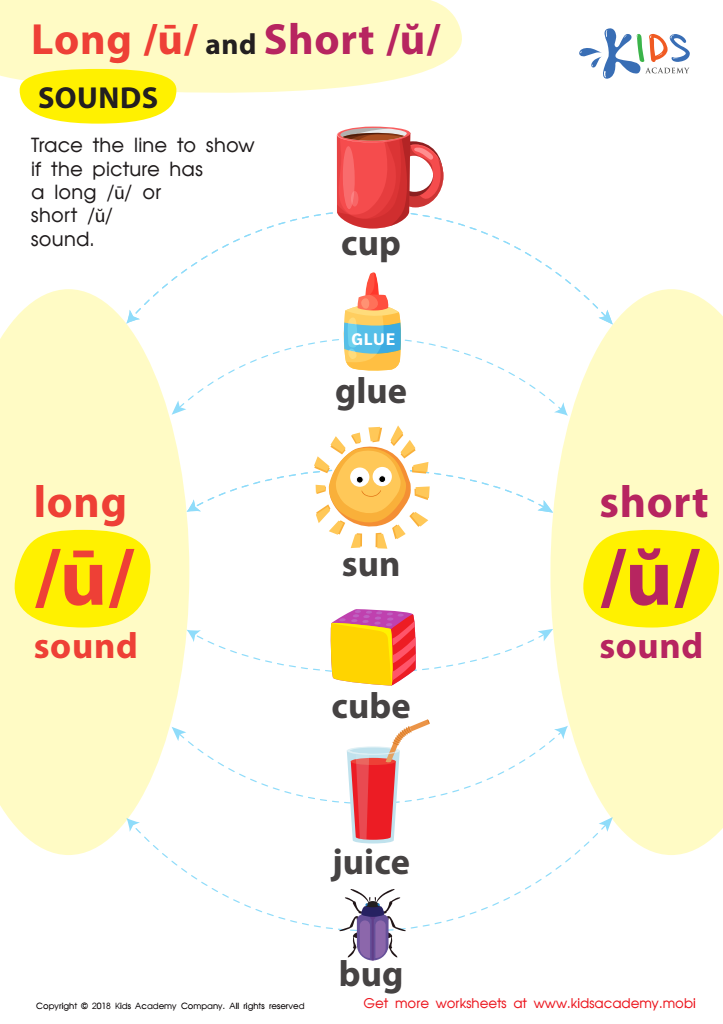Vowel Recognition Letter Recognition Worksheets for Ages 7-8
4 filtered results
-
From - To
Enhance your child's literacy skills with our Vowel Recognition Letter Recognition Worksheets, designed specifically for ages 7-8. These engaging, printable worksheets focus on helping young learners identify and differentiate between vowels, promoting strong foundational reading abilities. With a variety of activities, including matching games, sound recognition, and fill-in-the-blank exercises, children will improve their understanding of vowels in a fun and interactive way. Ideal for home or classroom use, our worksheets encourage critical thinking and make learning enjoyable. Inspire confidence in your child's reading journey and watch them flourish with our delightful vowel recognition resources! Start exploring today!


Short Vowel /a/ Worksheet


Short Vowels /e/, /i/, and /u/ Worksheet


Reading: Long U and Short U Sounds Worksheet


Long Vowel Maze /o/ and /i/ Worksheet
Vowel recognition and letter recognition are fundamental skills that play a critical role in literacy development for children aged 7-8. As children progress through their early education, a strong grasp of vowels and the ability to recognize letters become essential for reading fluency and comprehension.
At this age, students begin to encounter more complex texts. Vowel recognition aids in decoding unfamiliar words, as vowels often determine word patterns and sounds. When children excel in identifying vowels, they become more confident readers, paving the way for better engagement with reading materials.
Teachers and parents should care about these skills because they are closely linked to overall academic success. A solid foundation in vowel and letter recognition not only supports reading but also influences spelling and writing abilities. Children who are proficient in these areas are more likely to participate actively in classroom activities and discussions.
Furthermore, fostering a positive attitude towards reading at this stage can instill a lifelong love for books and learning. By prioritizing vowel and letter recognition, parents and teachers can create a supportive environment that enhances children's language skills, literacy development, and academic performance, ultimately laying the groundwork for future educational achievement.

 Assign to My Students
Assign to My Students



















